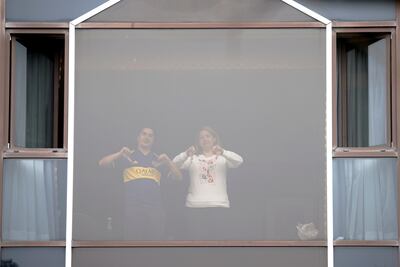A legal bid to challenge the UK Government’s mandatory hotel quarantine scheme for people flying to Britain from red list countries has been blocked by a High Court judge.
Three people who were attempting to force ministers to rethink the policy were prevented from having a full hearing by a judge who concluded there is an “element of choice” for travellers wishing to go to red list countries.
The scheme, which has been heavily criticised, particularly by travellers returning from countries which turned red while they were there, stipulates that passengers must spend 10 days in an assigned hotel upon arrival, and pay for it themselves. Passengers have to abide by the rules regardless of their vaccination status.
At the hearing on Thursday, Jamie Burton QC, representing the three claimants, argued the scheme deprived the travellers of their liberty and was in breach of their human rights.
“It is at least arguable that being required by law to occupy a guarded hotel room with less than an hour’s pre-approved guarded exercise per day, with no possibility of association except with those in your room, and under the threat of severe criminal sanctions for non-compliance, is a deprivation of liberty,” he said in written submissions.
Mr Burton added that under the scheme travellers do not choose the hotel they must stay in or how they get there.
“The managed hotel quarantine scheme applies to everybody … This is about people returning home to their homes and to their families,” he told the High Court. “It is not apt to describe this as some sort of free choice.”
“This issue needs to be looked at once and for all and determined properly,” Mr Burton concluded.

The scheme, which costs £2,285 ($3,017) for a solo traveller, includes the delivery of meals in disposable containers and supervised time to exercise in the fresh air once a day.
There are currently 11 nations on the red list, all in Africa, following the discovery of the Omicron Covid-19 variant.
Julia Smyth, for the Department of Health and Social Care, argued that while the quarantine system restricted people’s liberty, it was proportionate and necessary for the aims of safeguarding public health, particularly against variants that may evade coronavirus vaccines.
“There have been travel restrictions in some form or another since the start of the pandemic. The government’s concern is about variants,” she said.
The barrister said the government advises against travel to red list countries, adding: “In other words, ‘don’t travel but OK, if you do travel, there is a consequence’.”
She continued: “It is unarguable, it is unrealistic to submit that this system of being required to buy a package and stay in a hotel is a depravation of liberty.”
Mr Justice Fordham refused the bid for a full challenge at the High Court, finding the claim was not arguable and the scheme “satisfies the rigours of the standards of necessity and proportionality”.
“It must be relevant that there is an element of choice on the part of the individuals who travel to red list countries and then come back from them,” he later added.
Following the ruling, Tom Goodhead, managing partner at PGMBM representing the claimants, said they planned to take the case to the Court of Appeal.
He said people who have had two doses of a vaccine and abide by Covid restrictions should not have to take part in the scheme.
“We consider the hotel quarantine policy to be a fundamental breach of people’s human rights,” he said.
“The idea that they need to pay for the privilege of their own imprisonment is outrageous.”


